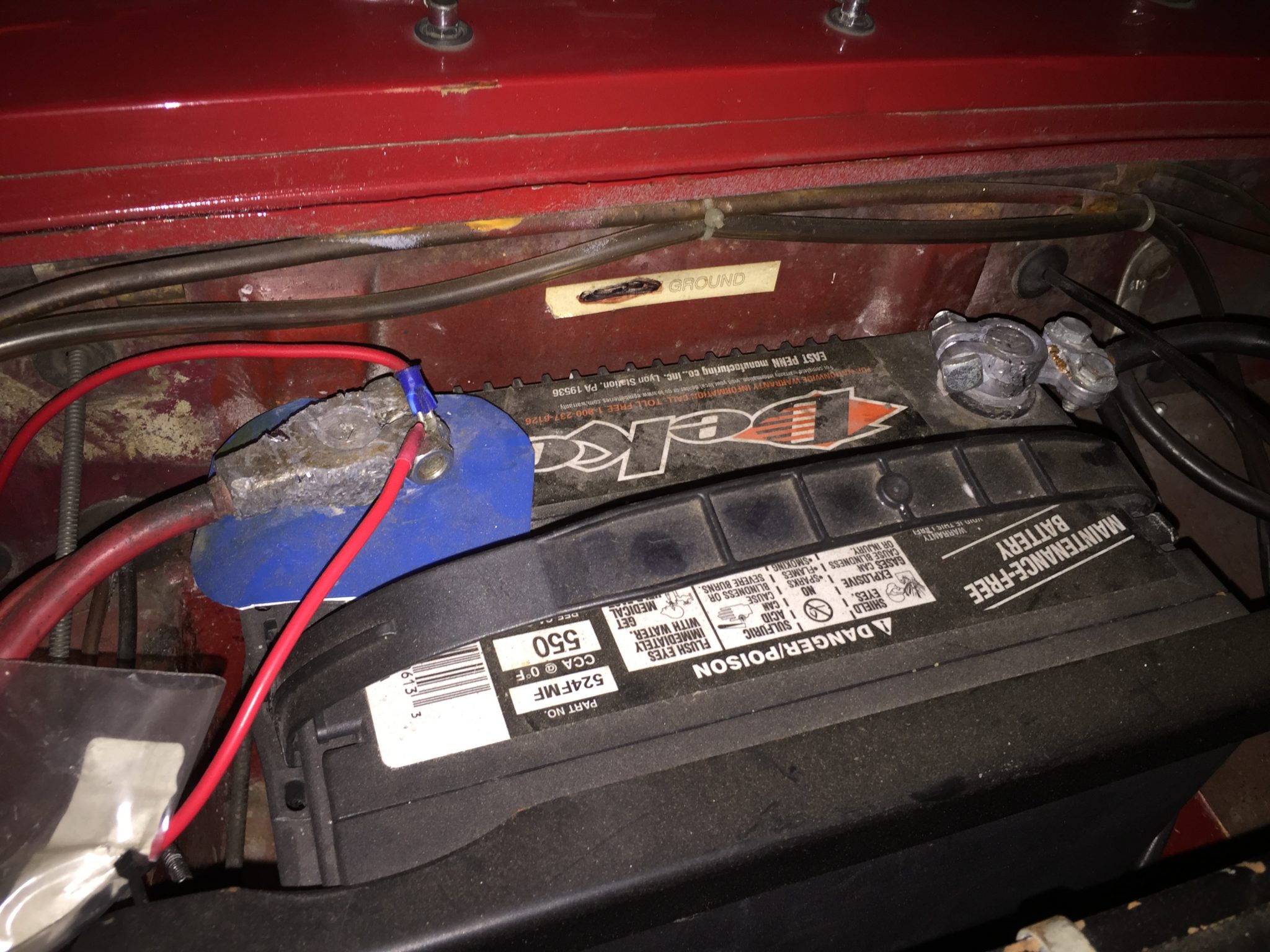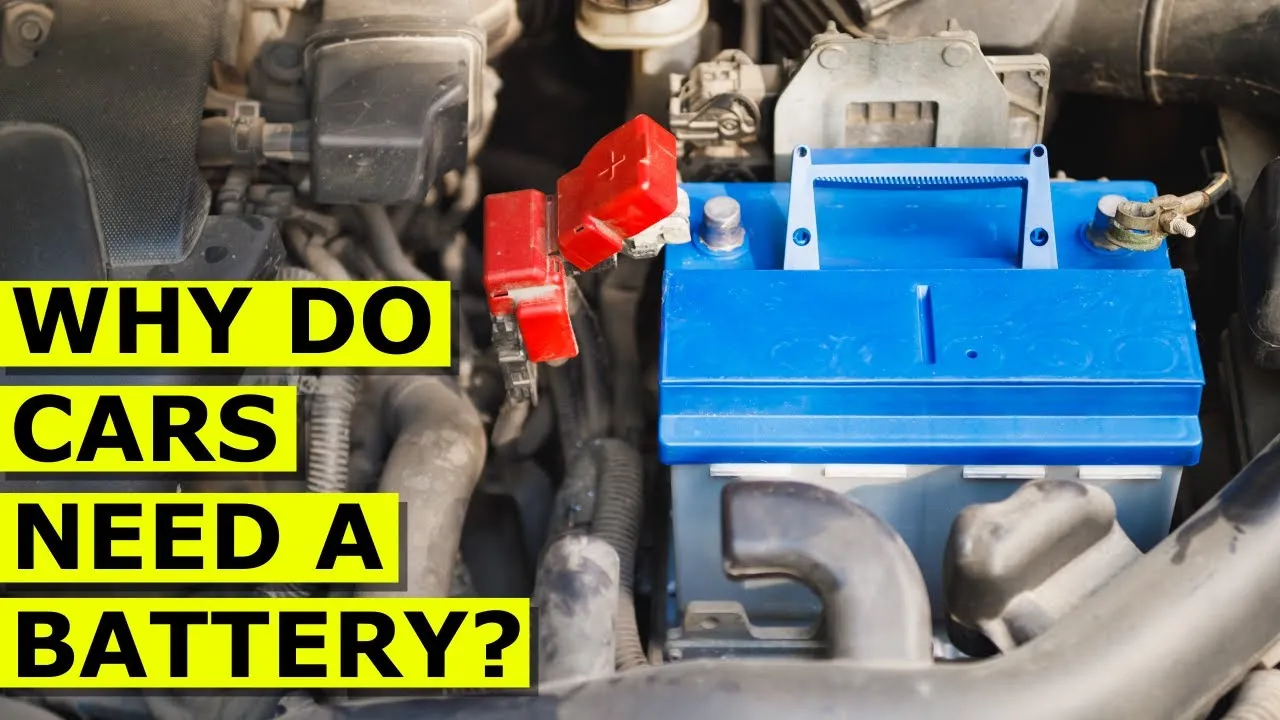Cool Tips About Why Do Cars Need To Be Grounded

Positive Ground Simplified
Why Ground a Car? It's Not About Staying Humble!
1. Static Electricity
Okay, so you might be thinking, "Grounding a car? Is that like telling it to stay down to earth?" Nope! It's all about dealing with something far more sneaky: static electricity. Think of shuffling your feet across a carpet on a dry day and then zapping your unsuspecting friend. That's static electricity building up. Cars, as they move through the air, experience a similar phenomenon.
As a car drives, the friction between the tires and the road, plus the air rushing over the body, generates static electricity. This charge accumulates on the car's metal surfaces. While it might seem harmless, this buildup can cause a few problems, especially when it comes to refueling.
Imagine the potential for disaster if a spark from static electricity ignites fuel vapors during refueling! That's why grounding becomes crucial. It provides a safe path for this static charge to dissipate, preventing sparks and minimizing the risk of a fire. Think of it as giving the electricity a safe exit route, like a tiny, metal highway to the earth.
Beyond refueling safety, grounding also helps protect sensitive electronic components in modern vehicles. These components are susceptible to damage from static discharge. Grounding provides a stable electrical environment, reducing the likelihood of electronic gremlins popping up and causing headaches.
2. Fueling Up
Let's zoom in on the refueling process. You pull up to the pump, swipe your card, and get ready to fill 'er up. But did you know that the flow of fuel itself can also generate static electricity? The fuel sloshing around in the tank, combined with the friction of the fuel moving through the hose, adds to the static charge.
If the car isn't properly grounded, this static electricity can arc between the fuel nozzle and the car's fuel filler neck. That spark, however small, could ignite the fuel vapors. And nobody wants a fiery surprise at the gas station! Grounding eliminates this risk by providing a continuous electrical connection between the car, the fuel pump, and the earth.
Many fuel pumps have built-in grounding mechanisms, but it's still a good idea to avoid wearing clothing that easily generates static electricity, like wool or certain synthetic fabrics, while refueling. Minimizing static buildup from all sources is always the safest approach.
Think of it like this: you wouldn't juggle flaming torches near a stack of fireworks, right? Similarly, you want to minimize the risk of static sparks around highly flammable fuel. Grounding is a key safety measure that helps keep things spark-free.
3. Protecting the Car's Inner Workings
Modern cars are packed with electronic control units (ECUs), sensors, and other delicate electronic components. These components are the brains and nervous system of the vehicle, controlling everything from the engine to the entertainment system. But they're also vulnerable to the damaging effects of static electricity.
A static discharge, even a small one, can fry these components, leading to malfunctions, erratic behavior, or even complete failure. Grounding the car creates a stable electrical environment, preventing static electricity from building up and potentially damaging these sensitive electronics. It's like giving your car a protective shield against electrical gremlins.
Without proper grounding, static discharge can cause everything from intermittent sensor readings to complete ECU failure. This can lead to costly repairs and a frustrating driving experience. So, grounding is not just about safety; it's also about protecting your investment in your vehicle.
Furthermore, proper grounding helps to reduce electrical noise and interference, which can improve the performance of various electronic systems, such as the radio and the GPS. A well-grounded car is a happy car, with all its electronic systems functioning smoothly and reliably.
4. How Grounding Works
Okay, let's break down how grounding actually works. In simple terms, it's about providing a low-resistance path for electricity to flow to the earth. The earth acts as a giant reservoir for electrical charge, able to absorb excess electricity without any significant change in its own electrical potential.
Cars are grounded through their metal frames, which are connected to the chassis. The chassis, in turn, is connected to the wheels, which make contact with the ground. This creates a continuous electrical path from the car's body to the earth. Any static electricity that builds up on the car's surface can then safely dissipate into the ground.
The key to effective grounding is ensuring that all the connections in this path are clean and secure. Corrosion or loose connections can increase resistance, hindering the flow of electricity and reducing the effectiveness of the grounding system. That's why it's important to inspect and maintain the grounding connections on your car.
Think of it like a water pipe. If the pipe is clear and unobstructed, water can flow freely. But if the pipe is clogged or damaged, the flow will be restricted. Similarly, clean and secure grounding connections allow static electricity to flow freely to the earth, preventing buildup and potential problems.
5. Checking and Maintaining Grounding Connections
While grounding is generally a passive system, meaning it works automatically without requiring any special action from the driver, it's still a good idea to periodically check the grounding connections on your car. Look for signs of corrosion, rust, or loose connections. These can impair the effectiveness of the grounding system.
The main grounding points are typically located between the engine block and the chassis, and between the battery and the chassis. You can use a wire brush to clean any corrosion from these connections and then tighten the bolts or screws to ensure a secure connection. A little bit of preventative maintenance can go a long way in ensuring proper grounding.
If you're not comfortable working on your car's electrical system, it's always best to consult a qualified mechanic. They can inspect the grounding connections and make any necessary repairs or adjustments. Proper grounding is an important safety feature, so it's worth the effort to ensure it's working correctly.
Regular inspection and maintenance of your car's grounding system can help prevent electrical problems, protect sensitive electronic components, and ensure a safe refueling experience. It's a small but important aspect of car care that often gets overlooked. Consider adding it to your regular maintenance checklist.

Frequently Asked Questions (FAQs)
6. Why can't I just touch the car to discharge static electricity?
While touching the car might discharge some static, it's unreliable and could still result in a spark, especially during refueling. The car's grounding system is designed to provide a consistent and safe path for discharge directly to the earth.
7. Is grounding only important during refueling?
No! While it's most critical during refueling to prevent fuel ignition, grounding also protects your car's electronic components from static damage year-round.
8. Can I improve my car's grounding system?
Yes, you can! Aftermarket grounding kits are available that provide additional grounding straps to improve the electrical connection between various components. However, consult a qualified mechanic before installing any aftermarket electrical components.



Finding Electrical Grounded Any Car YouTube
